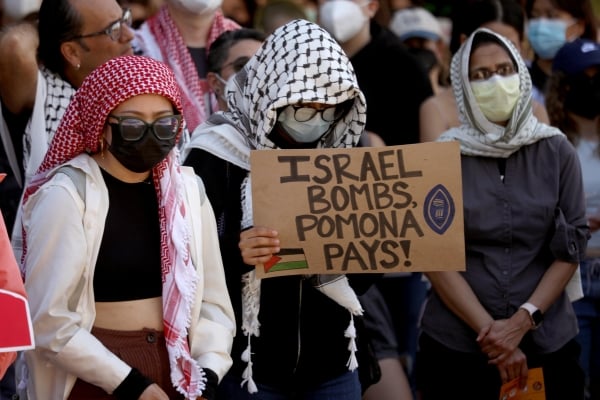Amidst a wave of student protests sweeping across the globe, authorities are cracking down on demonstrators with increasingly severe punishments. From Hong Kong to Chile to France, students are taking to the streets to demand political reform, economic equality, and environmental action. However, as these protests escalate, so too do the consequences for those involved.
In Hong Kong, where pro-democracy protests have been ongoing for months, the government has sought to quell dissent by imposing harsh penalties on demonstrators. In recent weeks, police have used tear gas, rubber bullets, and water cannons to disperse crowds, resulting in injuries and arrests. Additionally, protesters have faced charges of rioting, unlawful assembly, and even terrorism, with some facing lengthy prison sentences if convicted.
In Chile, students have been protesting for weeks against government corruption, social inequality, and the high cost of living. In response, President Sebastian Pinera has declared a state of emergency, deploying military and police forces to restore order. Hundreds of protesters have been arrested, with some facing charges of vandalism, looting, and inciting violence. Moreover, the government has proposed a new anti-mask law, which would criminalize covering one’s face during protests and carry a sentence of up to three years in prison.
In France, students have joined the larger Yellow Vest movement in calling for greater economic equality and environmental action. However, protests have been marred by violence, with clashes between demonstrators and police resulting in injuries and arrests. The government has responded by increasing fines for participating in unauthorized protests and occupying public spaces, as well as imposing restrictions on the wearing of masks and helmets.
As student protests continue to gain momentum around the world, governments are resorting to increasingly punitive measures to suppress dissent. However, these punitive responses risk further inflaming tensions and alienating the very individuals they seek to control. Instead of cracking down on protesters, authorities should address the underlying issues driving these demonstrations and engage in meaningful dialogue with students to pursue peaceful solutions.
In conclusion, as student protests escalate, so too do the punishments imposed on those involved. From Hong Kong to Chile to France, authorities are resorting to harsh measures to discourage dissent and maintain control. However, these punitive responses may only serve to fuel further unrest and deepen divisions within society. It is imperative that governments listen to the grievances of students, engage with them in a constructive manner, and work towards resolving the underlying issues at the heart of these protests. Only through dialogue and cooperation can a peaceful resolution be achieved.



